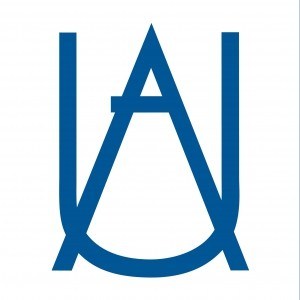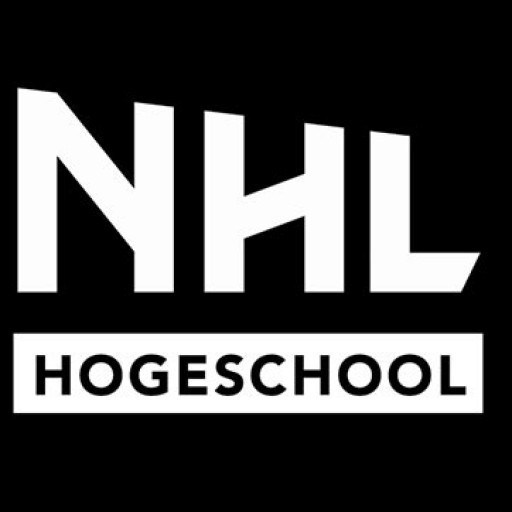Photos of university / #btucs
Semester I of the course aims at generating a similar level of basic knowledge and skills among students at all locations of the consortium, independent of their basic Bachelor's discipline. Physics, mathematics, ICT, environmental sciences as well as hydraulics, hydrology, numerics and GIS are taught. An overview of hydroinformatics and its applications is presented. Web-based collaborative engineering is introduced for a river management case study project. The content of semester I is harmonised in all locations to ensure an equal learning outcome for all students.
Semester II at Newcastle University covers the basics of hydroinformatics as well as an introduction to application and engineering aspects.
Semester III has three specialisation options: Hydroinformatic Systems (Cottbus), Urban Waters (Nice), Groundwater (Warsaw) and Decision Support (Barcelona).
Semester IV is reserved for the Master's thesis, which may be conducted either in research or in practice in cooperation with universities, research institutions or companies. Topics of the Master's thesis are defined according to the personal interests of the students on any water-related problem in hydroscience and hydroengineering with relation to hydroinformatics.
For details, please have a look at: http://www.b-tu.de/hydroinformatics-ms.
Semester II at Newcastle University covers the basics of hydroinformatics as well as an introduction to application and engineering aspects.
Semester III has three specialisation options: Hydroinformatic Systems (Cottbus), Urban Waters (Nice), Groundwater (Warsaw) and Decision Support (Barcelona).
Semester IV is reserved for the Master's thesis, which may be conducted either in research or in practice in cooperation with universities, research institutions or companies. Topics of the Master's thesis are defined according to the personal interests of the students on any water-related problem in hydroscience and hydroengineering with relation to hydroinformatics.
For details, please have a look at: http://www.b-tu.de/hydroinformatics-ms.
Educational organisation
The Master's programme is organised in four semesters over two years. All courses at the partner universities are modular in form and EuroAquae MSc candidates must achieve a total of 120 ECTS credits over the four semesters in order to fulfil the requirements for the MSc.The programme is organised as a pedagogic continuum:
The course begins in September (semester I) of each year and takes the form of formal tuition, including fieldwork, lectures, tutorials, seminars and web-based case study projects. Students on the EuroAquae MSc can start semester I of their studies in Cottbus, Nice or Barcelona. In semester II, all EuroAquae students attend Newcastle University. Semester III is offered only at the other four partner universities, while semester IV can be undertaken in industry, at a research institution or at any of the partner universities. In each semester, students take 30 ECTS credits.
BTU Cottbus-Senftenberg offers modules in semesters I, II and IV:
Semester I:
Module 1.1 (6 ECTS) Mathematics and Physics
Module 1.2 (6 ECTS) Hydrology and Hydraulics
Module 1.3 (6 ECTS) Introduction to Water and Aquatic Environment Management
Module 1.4 (6 ECTS) Computer Science in Hydroinformatics
Module 1.5 (6 ECTS) Web-based Collaborative Engineering and European Language Skills
Semester III:
Module 3.1 (6 ECTS) Numerical Simulation: Free Surface and Groundwater modelling
Module 3.2/3 (6 ECTS) Modelling Process in Hydroengineering Projects
Module 3.4 (6 ECTS) Information Management in Hydroinformatics Systems
Module 3.X (6 ECTS) HydroEurope - Working in a virtual institute: flood management
Module 3.Y (6 ECTS) Research methodology and European Language Skills
Semester IV:
Module 4.1 (30 ECTS) Research & Development/Professional Practice Project - Master's thesis
Study abroad unit(s)
Semester I can be taken at Cottbus/D, Nice/F or Barcelona/ES; semester II is at University of Newcastle/UK for all students, semester III is offered in Cottbus/D, Nice/F, Barcelona/ES and Warsaw/PL.Summer internships between semesters II and III are offered at non-EU partners: Universidad Nacional del Littoral (AR), Swiss Federal Institute of Technology Zurich (CH), Ecole Polytechnique Fédérale de Lausanne (CH), Indian Institute of Technology Madras (IND), National University of Singapore (SIN), Incheon National University (KR)
Intensive course HydroEurope: two weeks at the end of semester III at University of Nice/F
Semester IV: the Master's thesis can be performed at any location in Europe.
Forms of assessment
Course certificates are earned through exams and assignments for which ECTS credits are awarded. Depending on the modules, the exams can be oral or written. Assignments include reports, presentations and oral discussions.Acquired points are mutually recognised within the consortium.
Final degree: Master of Science in Hydroinformatics and Water Management
Course objectives
The objective of the Master's course is to train future scientists and engineers in modelling the aquatic environment and running water-related engineering projects using hydroinformatics methods and tools. The course programme offers international/Europe-oriented knowledge, experiences and skills, facilitating employment as experts in water-related international and interdisciplinary engineering and management projects. Specific focus is placed on hydroinformatics topics such as numerical simulation methods and models, information modelling and management in distributed project environments, web-based and sensor-based technologies for hydroinformatics systems, interdisciplinary collaboration to integrate economic, ecological, social and environmental aspects in hydroscience, and engineering activities in the aquatic environment. Students can acquire skills to run projects in the areas of water supply, waste water management, groundwater management, coastal and river engineering, flood management, climate change impact on water resources, and water quality management, amongst others.Language requirements
Certificate of proficiency in English, TOEFL with a minimum score of 575 points (paper-based), 90 (iBT), IELTS 6.5, or equivalentAcademic requirements
The minimum qualification is a degree (at least second class or grade B) from a university (BSc) or equivalent. A preferred first degree would be in engineering (any branch), environmental sciences, physics, computer sciences, geography, mathematics, chemistry, geology, or a similar subject. Advanced-level mathematics is required.Enrolment fees
Students are required to pay an enrolment fee of approx. 259 EUR per semester. This fee includes some services offered by the student services (Studentenwerk Frankfurt/Oder) and the BTU student council. The fee also pays for a semester ticket, which permits free travel on all public transport with VBB in the state of Brandenburg and in Berlin as well as free use of the regional train (RE 18 and 15) to Dresden.Costs of living
The cost of studying abroad can differ significantly from studying in your home country. We recommend that students budget between 550 to 700 EUR per month for accommodation, health insurance, living expenses, books, etc. Of course, this amount depends entirely on the individual lifestyle.Monthly costs:
- rent (incl. utilities): 170-280 EUR
- groceries: 150 EUR
- health insurance, medical fees, medication: 80 EUR
- miscellaneous (clothing, study materials, other activities): 100-200 EUR
You will not need to pay for public transport in Berlin and Brandenburg. The semester ticket for buses and trains operated by VBB is already included in the semester fee.
Job opportunities
There are job opportunities both in town and on campus. Nevertheless, please do not come to Germany expecting to be able to finance your entire studies by working. The study load is high, and it is not always easy to find a part-time job. Non-EU citizens are allowed by law to work for a maximum of 120 days per year. Students who are employed by the university in one of the institutes or departments ("Studentische Hilfskräfte") are exempt from this regulation, but other restrictions apply.Funding opportunities within the university
https://www.b-tu.de/en/international/incoming-students/during-studies/scholarship
Arrival support
The university's International Relations Office assists foreign students with registration and enrolment procedures at the university upon arrival. It also holds an information session at the beginning of each semester covering administrative procedures and cultural events that are offered throughout each semester. The BTU holds an orientation week each October prior to the beginning of classes. During this week, each faculty offers orientation sessions. New students are provided with detailed programme information as well as academic advice and have the opportunity to meet professors and other students at these orientation sessions. The student organisation, OTIWO, offers cultural events throughout this week. Attendance is highly recommended! The university's tutor group "BTU Buddies" and the student council are there to assist English-speaking students in the international programmes. For example, they will accompany the students when registering for health insurance and with municipal authorities.Services and support for international students
To ensure that international students feel comfortable on the BTU campuses and around the cities of Cottbus and Senftenberg, the Student Activities Office, run by the International Relations Office, offers services such as cultural events, excursions, job and career advice, home stays with German families, and much more.For more information, please consult this website. See: https://www.b-tu.de/en/international/incoming-students/during-studies
Furthermore, intensive guidance is provided by professors, lecturers, and programme officers within the study programmes.
Accommodation
Most students live in on-campus student residences. Rooms are mostly either single with a shared kitchen and bathroom or one-room apartments. Prices range from 190 to 270 EUR. More information on accommodation is available at http://www.studentenwerk-frankfurt.de.Private off-campus accommodation is also available. You can rent your own apartment or share with other students. Private accommodation can be found on the Internet at: https://www.b-tu.de/en/international/incoming-students/arrival.









